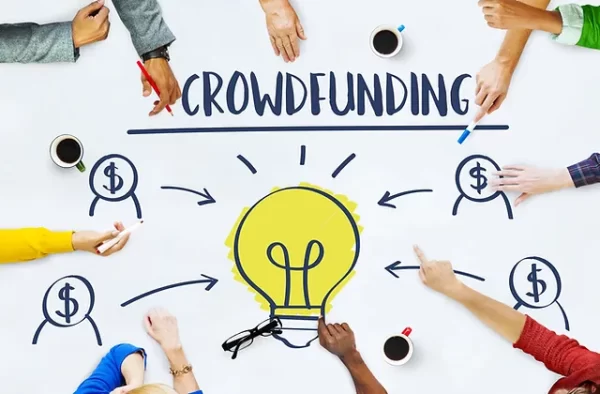Unveiling the Power of Crowdfunding: A New Era in Raising Capital
In an age where digital connections drive progress, crowdfunding has emerged as a revolutionary approach to securing financial support. This modern funding mechanism is transforming how we bring ideas to life, offering a unique alternative to traditional financing. Let’s dive into the dynamic world of crowdfunding and explore how it’s reshaping the financial landscape.
Understanding Crowdfunding:
Crowdfunding is the process of raising funds by collecting small contributions from a large group of people, usually through online platforms. It democratizes access to capital, enabling entrepreneurs, creatives, and innovators to bypass conventional funding methods. From launching groundbreaking products to supporting charitable causes, crowdfunding offers a platform to engage with a global community and secure the resources needed to realize ambitious projects.
The Evolution of Crowdfunding Platforms:
The advent of crowdfunding platforms has revolutionized fundraising, connecting project creators with potential backers. Platforms like Kickstarter, Indiegogo, and GoFundMe each cater to different needs:
- Kickstarter is renowned for supporting creative projects, ranging from innovative tech gadgets to artistic ventures, providing a stage for visionaries to present their ideas.
- Indiegogo offers a broader range of project categories, including personal and community-focused initiatives, with flexible funding options to suit various needs.
- GoFundMe excels in facilitating support for charitable causes and personal fundraising, creating a space for individuals and organizations to seek assistance for meaningful endeavors.

Why Crowdfunding is So Effective?
Crowdfunding’s success can be attributed to several key factors:
- Community Connection: It builds a sense of shared purpose and engagement. Backers are driven by the desire to support causes and projects they believe in, beyond just financial incentives.
- Validation and Insights: It serves as a proving ground for ideas. Positive responses and early support can validate a concept and attract further investment or partnership opportunities.
- Exposure and Promotion: Crowdfunding campaigns often function as marketing tools. The process of promoting the campaign, interacting with backers, and providing updates generates buzz and enhances visibility.
- Funding Flexibility: Crowdfunding offers various models, such as all-or-nothing (where funds are only collected if the goal is achieved) or keep-it-all (where funds are retained regardless of the goal).
Navigating the Challenges:
While crowdfunding offers many benefits, it also presents challenges that require careful planning:
- Campaign Strategy: Developing a compelling narrative, setting achievable goals, and offering appealing rewards are essential for a successful campaign.
- Marketing Efforts: Attracting attention to the campaign page and sustaining interest demands a robust marketing strategy, including social media outreach and media coverage.
- Fulfillment and Communication: Managing backer expectations and delivering on promises are crucial for maintaining trust and ensuring a positive outcome.
Looking Ahead: The Future of Crowdfunding
The future of crowdfunding is bright, with technological advancements driving new possibilities. Emerging trends like equity crowdfunding, where backers receive shares in the venture, and the integration of blockchain for enhanced transparency, are set to transform the crowdfunding landscape. The ability to connect with a global audience and harness collective support will remain at the heart of this innovative funding approach.
Conclusion:
Crowdfunding stands as a powerful testament to the spirit of innovation and community collaboration. It provides a unique platform for turning ideas into reality, whether you’re an aspiring entrepreneur, a creative genius, or someone with a noble cause. By leveraging the potential of crowdfunding, you can tap into a worldwide network of supporters and bring your vision to life.
FAQs:
1. What is crowdfunding, exactly?
Crowdfunding is a way to raise money by gathering small amounts of financial support from a large number of people, usually through online platforms. It allows creators, entrepreneurs, and organizations to fund projects by appealing directly to the public, bypassing traditional financial routes.
2. How does the crowdfunding process work?
In crowdfunding, you create a campaign on a platform where you present your idea, set a funding goal, and often offer rewards to contributors. The campaign is then shared with potential backers who can pledge money to support your project.
3. What types of crowdfunding exist?
Crowdfunding can take several forms:
- Reward-based crowdfunding: Backers receive a product, service, or other reward in exchange for their support.
- Equity crowdfunding: Contributors invest in your business in exchange for equity or shares.
- Donation-based crowdfunding: People donate to a cause or project without expecting anything in return.
- Debt crowdfunding (peer-to-peer lending): Individuals lend money with the expectation of being repaid with interest.
4. Which crowdfunding platforms are most popular?
Popular platforms include Kickstarter, Indiegogo, GoFundMe, and Patreon. Each has its own strengths, with Kickstarter focusing on creative projects, Indiegogo offering flexibility, GoFundMe specializing in personal and charitable causes, and Patreon supporting ongoing content creation.
5. How do I pick the right crowdfunding platform?
Choosing the right platform depends on the nature of your project, your audience, and the platform’s fees and features. For creative ventures, Kickstarter might be ideal, while GoFundMe is better suited for personal fundraising. Research each platform’s track record and success rates to make an informed decision.
6. What benefits does crowdfunding offer?
Crowdfunding provides several advantages:
- Access to funds: It opens up a new way to secure funding without needing loans or investors.
- Market validation: A successful campaign can prove the viability of your idea and attract further interest.
- Community building: Crowdfunding helps you build a loyal community of supporters.
- Increased visibility: Running a campaign can also serve as a marketing tool, boosting awareness of your project.
7. What challenges might I face in crowdfunding?
Crowdfunding comes with its own set of challenges:
- Campaign management: Successfully running a campaign requires strategic planning, effective marketing, and consistent communication.
- Uncertain outcomes: Not all campaigns reach their goals, particularly on platforms with all-or-nothing models.
- Fulfillment pressure: Delivering rewards and meeting backer expectations can be logistically demanding.
8. How much money can I realistically raise through crowdfunding?
The amount you can raise varies widely based on your campaign’s appeal, your outreach efforts, and the size of your network. Some campaigns raise only a few thousand dollars, while others generate millions. Setting a realistic goal and actively engaging your audience are key to success.
9. What happens if my crowdfunding campaign doesn’t meet its goal?
On platforms like Kickstarter, if you don’t meet your funding goal, no funds are collected, and backers aren’t charged. Other platforms, such as Indiegogo, offer flexible funding, allowing you to keep whatever money you raise even if you don’t reach your target.
10. Are there legal or tax considerations with crowdfunding?
Yes, crowdfunding can have legal and tax implications. Funds raised may be subject to taxation, and equity crowdfunding involves securities regulations. It’s advisable to consult with a legal or financial advisor to understand your responsibilities.
11. How can I effectively promote my crowdfunding campaign?
Effective promotion is crucial. Utilize social media, email campaigns, press releases, and personal outreach to drive traffic to your campaign. Engaging content, regular updates, and active interaction with potential backers are key to maintaining interest.
12. What kind of rewards should I offer in a reward-based crowdfunding campaign?
Rewards should be attractive and relevant to your project. They could include early access to products, exclusive merchandise, or unique experiences. Offering tiered rewards can incentivize higher contributions by providing more valuable options at higher levels.
13. How long should my crowdfunding campaign run?
A typical campaign runs for 30 to 60 days. This length allows you to build momentum while maintaining urgency. Shorter campaigns can create a sense of immediacy, while longer ones provide more time for outreach and engagement.
14. What if I can’t fulfill the promises made in my crowdfunding campaign?
If you encounter issues that prevent you from fulfilling your promises, it’s essential to communicate openly with your backers. Provide updates, explain the situation, and offer alternative solutions or refunds if possible to maintain trust and credibility.
15. Can I launch more than one crowdfunding campaign?
Yes, you can run multiple campaigns. However, each should offer something new or improved, and it’s important to have successfully delivered on any previous campaigns to maintain trust with your backers.




